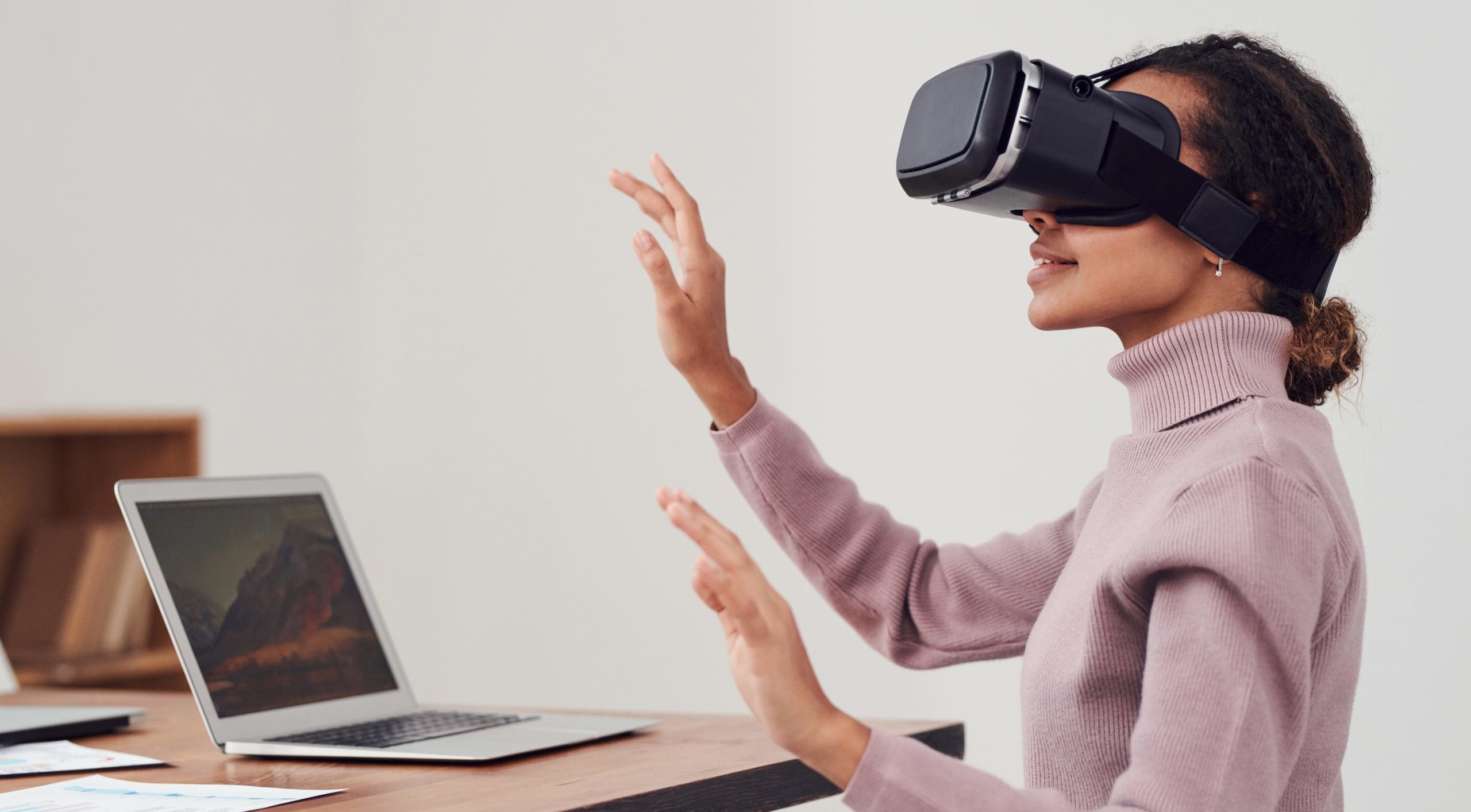Connections

EES 2021: Taking Virtual Reality Into Live Performances and Beyond
Story Highlights
Kiira Benzing, executive creative director of Double Eye Studios and founder of the Virtual Repertory Theatre, used the closing keynote at the July 21 Entertainment Evolution Symposium (EES) to discuss the emerging scene of live performance in virtual reality (VR), and the role that data plays in determining outcomes for the audience experience.
UTA IQ released a study last year on “Media and Entertainment in the Time of Coronavirus” that said 96 percent of people planned to attend some form of live event once they felt safe to do so, she noted, during the session, “Storytelling, Live Performance & Data.”
Now what would happen if we started to design live events completely in virtual environments?
The VR market is expected to continue growing, Benzing said. Citing IDC’s worldwide VR headsets forecast, she said VR headset shipments grew 52.4 percent in the first quarter of 2021 and are “expected to hit” 28.6 million units in 2025.
“As we continue to deepen experiences, giving people haptics” feedback technology providing tactile responses including vibration like video game controllers, “they will continue to feel even more fully embodied and very real experiences,” she added.
There is also a “wide array of tools at our disposal these days,” made possible by increasingly powerful game engines from Unity and Unreal, along with social VR platforms including AltspaceVR and VRChat, she said, predicting “many more” will follow.
Her development team at Double Eye Studios creates immersive entertainment using emerging technologies including volumetric capture, augmented reality and VR, she said. Especially with VR, “we believe in social connection,” she said, noting VR “can be solitary and lonely but we want to design experiences that make them accessible for the greater collective.” The team is also out to create content that is “emotionally driven” and offers “unique and unexpected” experiences, she noted.
For the past five years, the team has been focused on “infusing live performance” with VR, she pointed out, adding its social and multiplayer experiences have been used to deal with “difficult topics like gentrification.”
The team’s “goal continues to be about bringing professional actors and Broadway technologists and technicians into VR,” she said.
To that end, “since March 2020, we’ve taken all of our work fully into the virtual worlds using game engines, a VR headset and virtual collaboration tools to create our productions and even to train our new talent, and that goes from stage managers to technicians to the actors,” she said.
Last year, the team also founded the Virtual Repertory Theatre, she said, noting the pandemic shutting down live theater created an opportunity to train people and “give them new skillsets, so we feel like we’re building a new ecosystem right now” in which it is “creating new job opportunities for people to work in the virtual field.”
She went on to take those watching the session behind the curtain of the Venice Film Festival award-winning production “Finding Pandora X” and discussed participatory storytelling and how to engage with audiences in virtual environments.
Benzing described the production as “like a mix of live theater meets an escape room,” with a “story structure that is a branching narrative and it’s in the genre of a quest.” Audiences play an interactive and collective role, representing members of a Greek chorus, she noted, adding they are given avatars like costumes to change into, work with the actors to solve puzzles, and “engage in participatory storytelling.” Based on polling, audiences want to be even more engaged in the action, she added.
Her team partnered with Hewlett-Packard to work with an entirely remote cast and crew, while developing new remote collaboration practices.
The team is also “exploring a couple of different ways to capture some different types of motion data,” Benzing said, noting they also send out optional survey forms after shows to get a better sense of how audiences want to interact with the production.
They are also finding that many people who never thought they would be open to VR become open to it after seeing and taking part in one of the shows, she added.
However, “there’s always a handful” of people who experience motion sickness or other issues from VR, she conceded. “More adventurous” people want to engage as much as they can with the experience – such as with full body-tracking, she said, explaining: “The more we can put someone’s body into it, the less nauseous they’re going to feel. But they do have to be careful about certain things so if they do tend to get nauseous, then they shouldn’t be someone who grapples and flies across the space” through their avatars – “they should keep their feet on the ground” and have a “more controlled experience.”
The Entertainment Evolution Symposium event was produced by the Hollywood IT Society (HITS), Pepperdine’s Graziadio Business School, and MESA. The event was sponsored by Whip Media, PacketFabric, 5th Kind, Qumulo, EIDR, Klio and the Trusted Partner Network.









